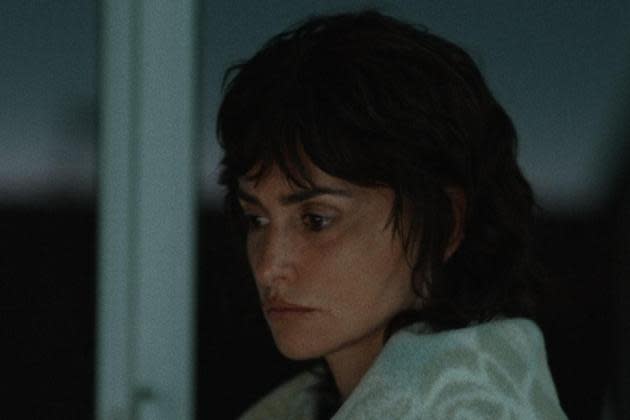Int’l Critics Line: Penélope Cruz In ‘On The Fringe’
- Oops!Something went wrong.Please try again later.
- Oops!Something went wrong.Please try again later.

Falling somewhere between Ken Loach’s most recent films about poverty (Sorry, We Missed You; I, Daniel Blake) and a telenovela, On the Fringe, Juan Diego Botto’s debut as a director, sets out to give a snapshot of Spain’s eviction crisis. An end-title tells us that around a hundred households are evicted every day in Spain, but the story could be told in any city where jobs are scarce and wages are falling – in other words, almost anywhere.
Botto aims to give the crisis a human face – or, more exactly, human faces – by relating one day in the lives of several families whose lives are connected, whether they know it or not, by their imminent homelessness. It is overwrought, but certainly well-meaning. The film premiered in the Venice Film Festival’s Horizons section and also played at San Sebastián.
More from Deadline
2022 Venice Film Festival – Photo Gallery
Penélope Cruz, both the marquee name on this project and a producer, is transformed as scruffy mother and supermarket shelf-stacker Azucena. She and her husband Manuel – played by the director – have missed several mortgage payments since he lost his job; the bailiffs are due the next day. Constantly gulping back panic, she rushes between the bank and community support meetings and packing boxes at home.
Her small son is so paralyzed by her fear that he has stopped speaking; meanwhile, Manuel is working in a warehouse for four euros an hour. Ashamed of his failure to provide for his family, he taunts his wife, dismissing her attempts to save their home as pointless and regularly storming off to the bar. At work, by contrast, he nags a similarly shamed co-worker to return calls from his mother, who backed him in a business that failed, leaving them both penniless. A mother forgives everything, Manuel says. If he joined Azucena’s activist group, he would know that Teodora (Adelfa Calvo) is also about to lose her home.
Then there is Rafa, played by the great Luis Tosar, who has a home but may soon be thrown out of it; he is a community lawyer, so overworked and over committed that he is failing royally to keep his own family together. His wife Helena (Aixa Villagrán) is pregnant late in life, but he is signally failing to support her, never making it to their doctor’s appointments or pulling his weight at home; his teenage stepson Raul (Christian Checa) acts out the resentment his mother mostly keeps to herself.
On the morning of the day in question, Rafa happens to spot the child of a poor Arab client being taken from home by the police. Her mother is at work; the child is alone; by nightfall, she will be taken into care. Rafa has to find her mother. He also has to help plan the activists’ direct action against the eviction next day. He has to support Helena through amniocentesis. He has to do too many things, all of them urgent. Under his middle-class, male reserve, he is just as frantic as Cruz’s Azucena.
The interweaving of case studies is a familiar format, especially in films with an agenda like this one, but it has obvious pitfalls. Botto and his co-writer Olga Rodriguez move from one to the next effectively as all parties spiral towards the final crisis, but the contrivances of the links between them creak loudly. Worse are the many moments when these short scenes slither into sentimentality, particularly with the forgiving mother who is unfailingly introduced with a tinkling piano signaling her maternal gentleness. The drama is similarly over-egged; Manuel’s obstinacy feels unconvincingly manufactured for the sake of adding another dollop of conflict to an already heavy mix.
The manipulations of the telenovela spring to mind here. Botto holds back from giving us the stupefied reaction shots that are the hallmark of the genre, but Cruz’s perpetual hyperventilating comes perilously close to that kind of excess. Only Tosar, an actor now at the peak of his powers, manages to keep his character’s desperation within the boundaries of realism; he stays at the Loach end of the film’s spectrum.
One lesson to be learned from Loach’s campaigning films is that a drama played down is ultimately more poignant and its points better made. On the Fringe does work; it moves fast and in the right direction. Kudos to Botto, too, for taking on an urgent subject that isn’t pretty. Just take it down a few notches next time.
Best of Deadline
SAG-AFTRA Interim Agreements: Full List Of Movies And TV Series
Venice Film Festival @ 80: Memorable Moments & Stars 1932-2023 - Photo Gallery
Sign up for Deadline's Newsletter. For the latest news, follow us on Facebook, Twitter, and Instagram.

